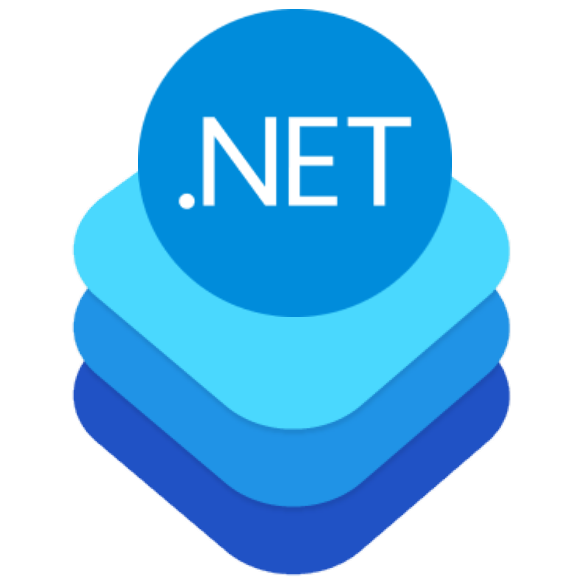25
AprWhat’s New in Asp.Net Core 6.0
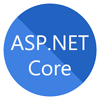
ASP.NET Core Course
Asp.Net Core 6.0: An Overview
Asp.Net Core is not a new one introduced in the .NET 6.0. But with .NET 6.0, Microsoft introduced many new features or functionality within the Asp.Net Core which will help the developer during their development process. As we know, Microsoft released the Asp.Net Core 6.0 version on November 8, 2021. ASP.NET Core is introduced as a new version of ASP.NET by Microsoft.
Through ASP.NET Core Training Courses you will know that Asp.Net Core is an open-source framework for developing any web application that can be hosted on any operating system, like Windows, Mac, or Linux. ASP.NET Core application can run on both .NET CORE and traditional .NET Framework (.NET framework 4.x).
Read More: Top 50 ASP.NET Core Interview Questions and Answers for 2024
.Net 6.0
On November 8, 2021, Microsoft officially released the long-term stable version of .Net 6.0. It includes around 10000 git commits. Through this release, now .Net 6.0 natively supports Apple Silicon (Mac OS Arm64) for the first time. Also, it provides improved support for the Windows Arm64-based operating systems. .Net 6.0 brings lots of new features along with massive gains in performance and optimization. Some of the new features related .Net 6 are mentioned below lists -.
- Hot Reload allows viewing code changes in real-time without restarting the app.
- Open Telemetry and dotNet monitor support.
- It provides Improvements for Visual Basic and Windows form-related project experience.
- Improvement in render capability for Blazor components from JavaScript.
- WebAssembly AOT compilation for Blazor WebAssembly apps.
- HTTP/3 support
- Provide Support related to symbolic links in File IO
- Support for OpenSSL, the ChaCha20Poly1305 encryption scheme, and runtime defense-in-depth mitigations
- Source generators and analyzers
- Performance is greatly increased across the framework.
- It supports C# 10 which offers many language improvements
- Also, F# 6 added newly as a new Features
Read More: What is an ASP.NET Core Developer? Skills to become ASP.NET Core Developer
The below image shows the details of .Net Core versions –
Read More: Salary Offered to ASP.NET Developers
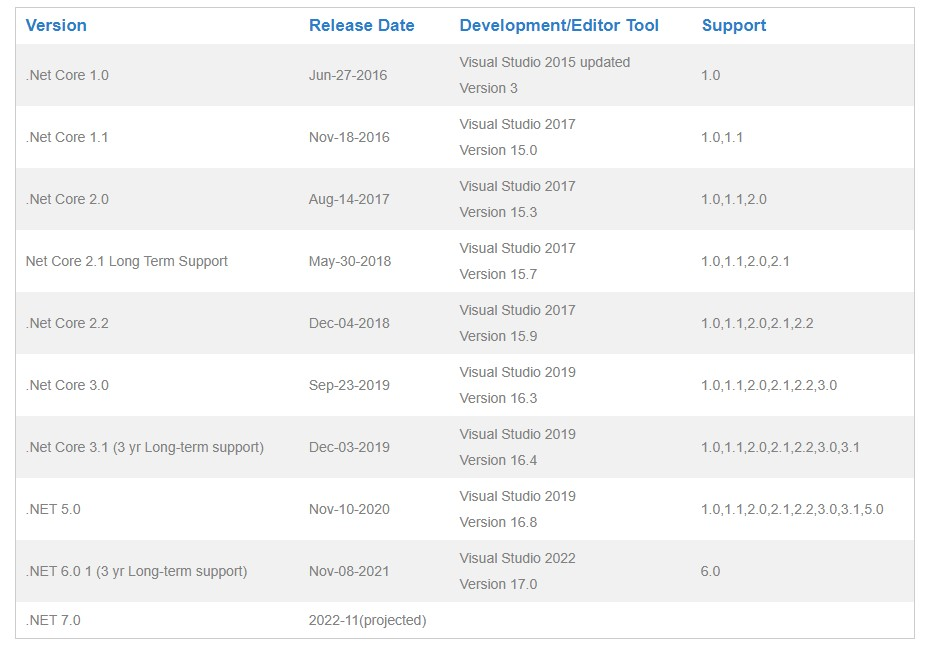
Since it is a cross-platform framework application code can be reused for all operating systems like Windows, Mac OS, and Linux. With the help of this cross-platform framework, we can create native mobile and desktop apps using C# and XAML. And, finally, by using .NET MAUI, users can develop applications that can run on Android, iOS, iPad, macOS, and Windows.
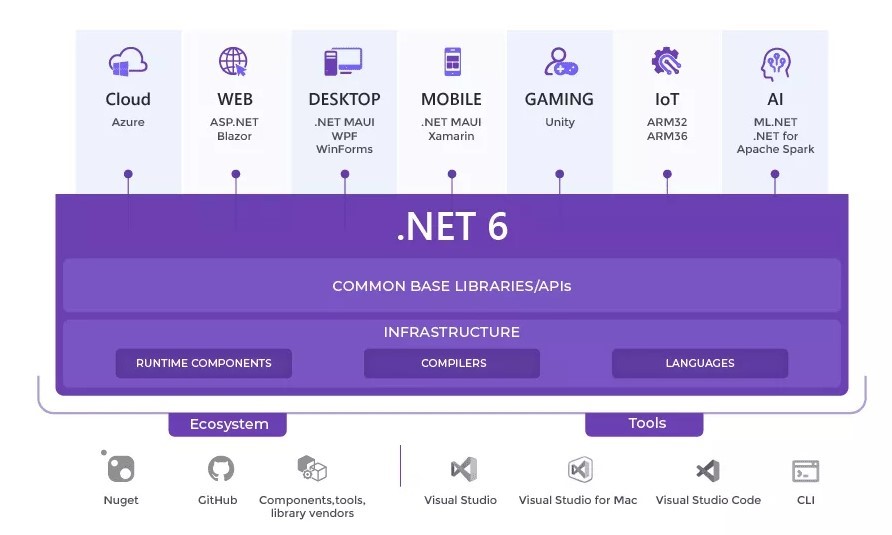
What’s New in Asp.Net Core 6.0?
Asp.Net Core 6.0 is also released along with .Net 6.0 by Microsoft. As we know, ASP.NET Core is a cross-platform, high-performance, open-source framework through which we can develop modern, cloud-enabled, Internet-connected apps. With the help of ASP.NET Core, we can perform the below types of development activity –
- Can develop web apps and services, Internet of Things (IoT)apps, and server-side parts of mobile applications.
- We can use our favorite development tools on different systems like Windows, macOS, and Linux.
- We can deploy the application to any cloud environment or on-premises servers.
.Net Core 6.0 Features
- NET Core 6.0 provides many improvements on MVC and Razor Framework. Some of the most important improvements are –
- Minimal APIs:Now, creating a new ASP.Net Core Web API-based application requires just a few lines of code with the help of the latest C# features along with minimal dependencies.
- Major Improvements in the SignalR Performance.
- Razor Compiler:Now, in the new version Razor Compilers are updated to use source generators. Source generators execute during the compilation process and finalize what needs to be compiled to generate additional files which will be compiled along with the rest of the project. With the help of source generators, build times are reduced for the applications.
- In Asp.Net Core 6.0, the Razor Compiler no longer produces or generates separate views related to assembly. As we all know that, in earlier versions, Razor Compiler used a two-step compilation process to generate Views assembly which normally contains the generated Views and pages (.cshtml files) within the applications. These generated types are public and use the AspNetCore namespace.
But now, in Asp.Net Core 6.0, Razor Compiler builds both Views and Pages types into the main project assembly as an internally sealed type (it is the default) and uses the AspNetCoreGeneratedDocumentnamespace. With the help of this new feature, build performance improved, and also we can enable a single file deployment concept.
- In Asp.Net Core 6.0, the system reduces the size of System.IO.Pipelines.pipe from 368 bytes to 264 bytes. For every connection that's established, two pipes are allocated in Kestrel.
- Hot reload: In Asp.net code 6.0, Hot Reload is introduced as a new feature. It means we can apply changes to Razor, C#, and CSS source lines into your handling operation during development time without rebuilding and resuming the operation.
- Async streaming: Asynchronously stream data from the server without buffering.
- IAsyncDisposable Supported: In Asp.Net Core 6.0, now we can use the IAsyncDisposable also for controllers, pages, models, and view components.
- Bootstrap 5.1: For any type of Web Application in ASP.NET Core 6.0, we can use the support of Bootstrap 5.1.
- Null-state Analysis: Now, all ASP.NET Core 6.0 templates have C# null-state analysis enabled automatically by default.
- JavaScript Modules: Places related to JavaScript modules alongside pages, and views using .cshtml.js and .razor.js lines.
- Net Core 6.0 provides support related to latin1 encoded request headers in HttpSysServer.
- Developer exception page Middleware is added automatically in this version while you create the applications.
- .NET WebAssembly Build Tools: Ahead-of-time (AOT) compilation for Blazor WebAssembly applications, as well as support for runtime relinking and native dependencies.
- Single-page applications: Built-in support for Angular 12 and React 17 based on a flexible template pattern that can be used with other front-end JavaScript frameworks.
- Socket Control: More control over socket creation and handling.
- Strongly-typed Headers: Access HTTP headers in a strongly-typed way.
- HTTP & W3C Logging: Log HTTP traffic, and log using the W3C Extended Log File Format.
Also, in Asp.Net Core 6.0, new features were introduced into the WebApp-based Templates like –
- Now, in Web-Based Application templates, Startup.cs and Program.cs files converted into a single file called Program.cs file.
- Now, we can reduce the number of files and lines of code required to create a web application.
- We can use top-level statements to minimize the lines of code required for the application.
- We can use the global directives so that it can eliminate or minimize the number of statement lines required in the application.
- Also, we can use the new minimal hosting model for web applications.
In Asp.net Core 6.0, Microsoft also provides some improvements related to the Blazor Frameworks –
- Now, we can render the Blazer components using JavaScript.
- Now, in a Blazer-based application, we can preserve the prerendered state of the application related to any value.
- We can now define the customer event-based arguments.
- Now, we can define any component parameters as a required value.
- Also, we can define the query-string-based parameters in Blazer components.
- Also, now in the Blazer Application, we can dynamically render components.
.NET 6 Is The Fastest .NET So Far
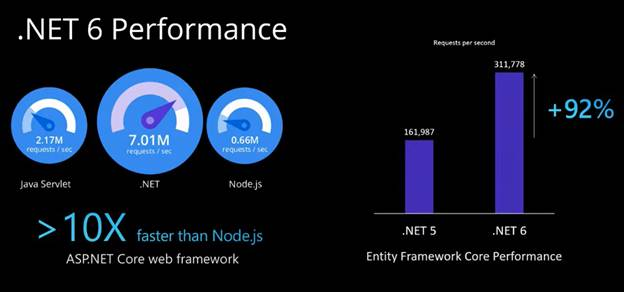
Other Key .NET Updates
- JSON APIs are more capable and have higher performance with a source generator for the serializer.
- Minimal APIs in ASP.NET Core simplify the getting started experience and improve the performance of HTTP services.
- Single-page apps built with ASP.NET Core now use a more flexible pattern that can be used with Angular, React, and other popular frontend JavaScript frameworks.
- HTTP/3 has been added so that ASP.NET Core, HttpClient, and gRPC can all interact with HTTP/3 clients and servers.
- File IO now has support for symbolic links and has greatly improved performance with a rewritten-from-scratch FileStream.
- Security has been improved with support for OpenSSL 3, the ChaCha20Poly1305 encryption scheme, and runtime defense-in-depth mitigations.
- Single-file apps (extraction-free) can be published for Linux, macOS, and Windows (previously only Linux).
- IL trimming is now more capable and effective, with new warnings and analyzers to ensure correct final results.
- Source generators and analyzers have been added that help you produce better, safer, and higher-performance code.
- Source build enables organizations like Red Hat to build .NET from source and offer their builds to their users.
- .NET 6 provides better support for containers that makes .NET 6 app packing, deployment, and execution much easier and resource-friendly.
Summary
Asp.net Core 6.0 has been released with many new features and functionality. In this article, we discuss the overview and features of the Asp.net Core 6.0. We also discussed the overview of the .Net 6.0. Any suggestions feedback or query related to this article are most welcome.
FAQs
Q1. What are the changes in ASP.NET Core 6?
- Minimal APIs
- WebAssembly Support
- Razor Components
- Blazor Improvements
- OpenAPI and Swagger Integration
Q2. What is ASP.NET Core 6 features?
- HTTP/2 and gRPC
- Azure Functions Integration
- Blazor Improvements
Q3. What is the difference between .NET 3.1 and .NET 6?
Q4. What is ASP.NET Core 6.0 runtime?
Take our free aspnet skill challenge to evaluate your skill

In less than 5 minutes, with our skill challenge, you can identify your knowledge gaps and strengths in a given skill.





